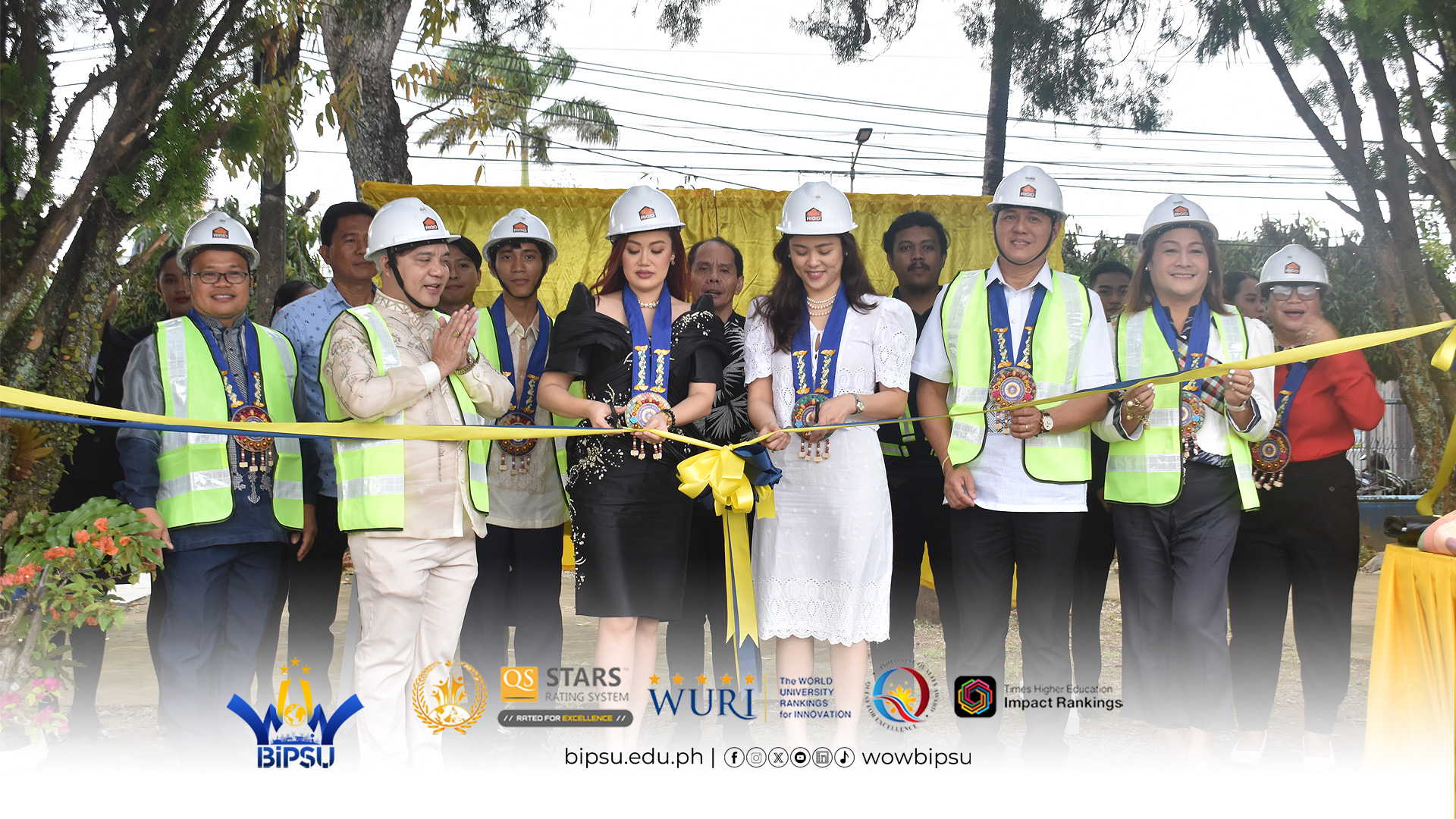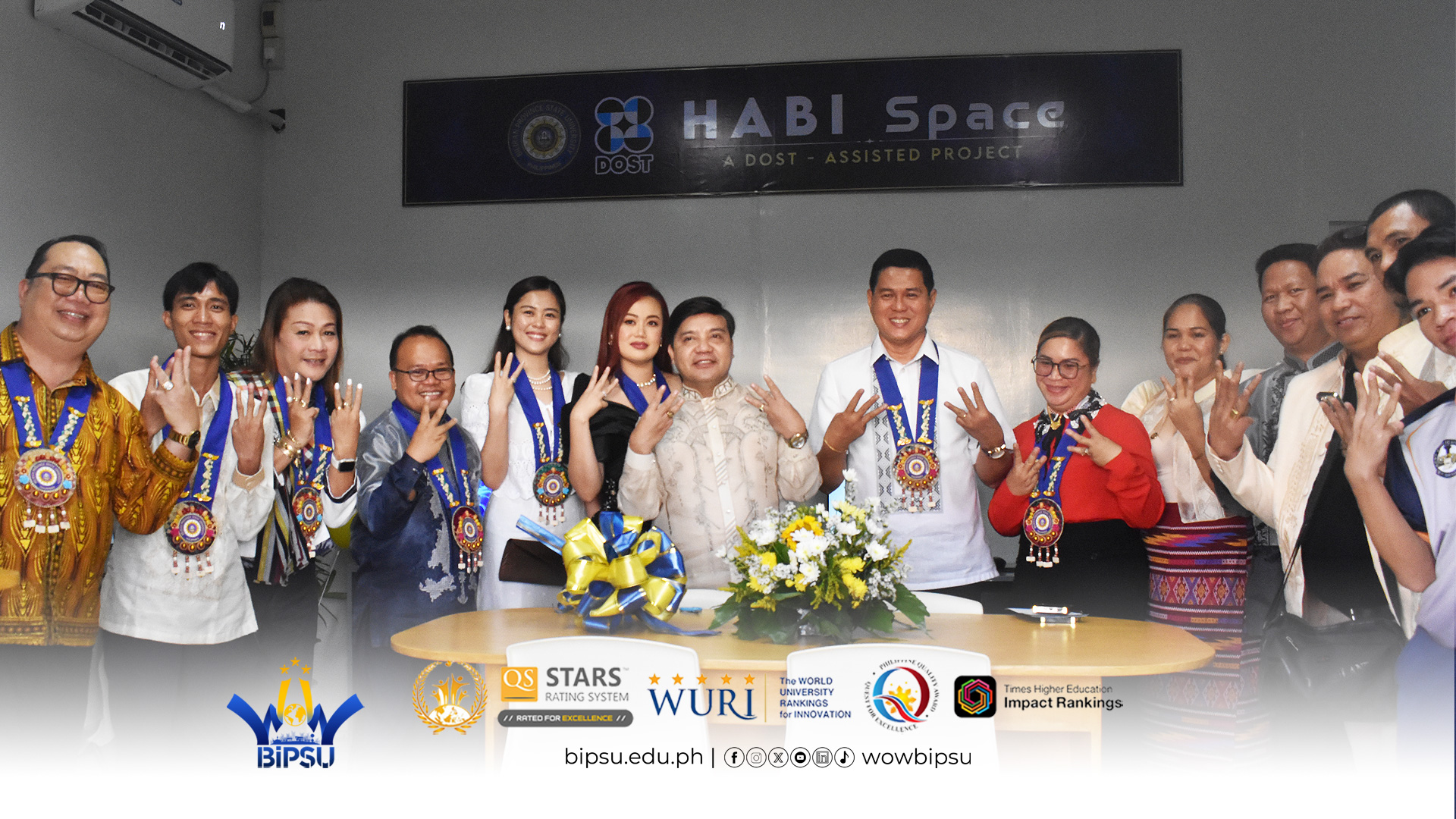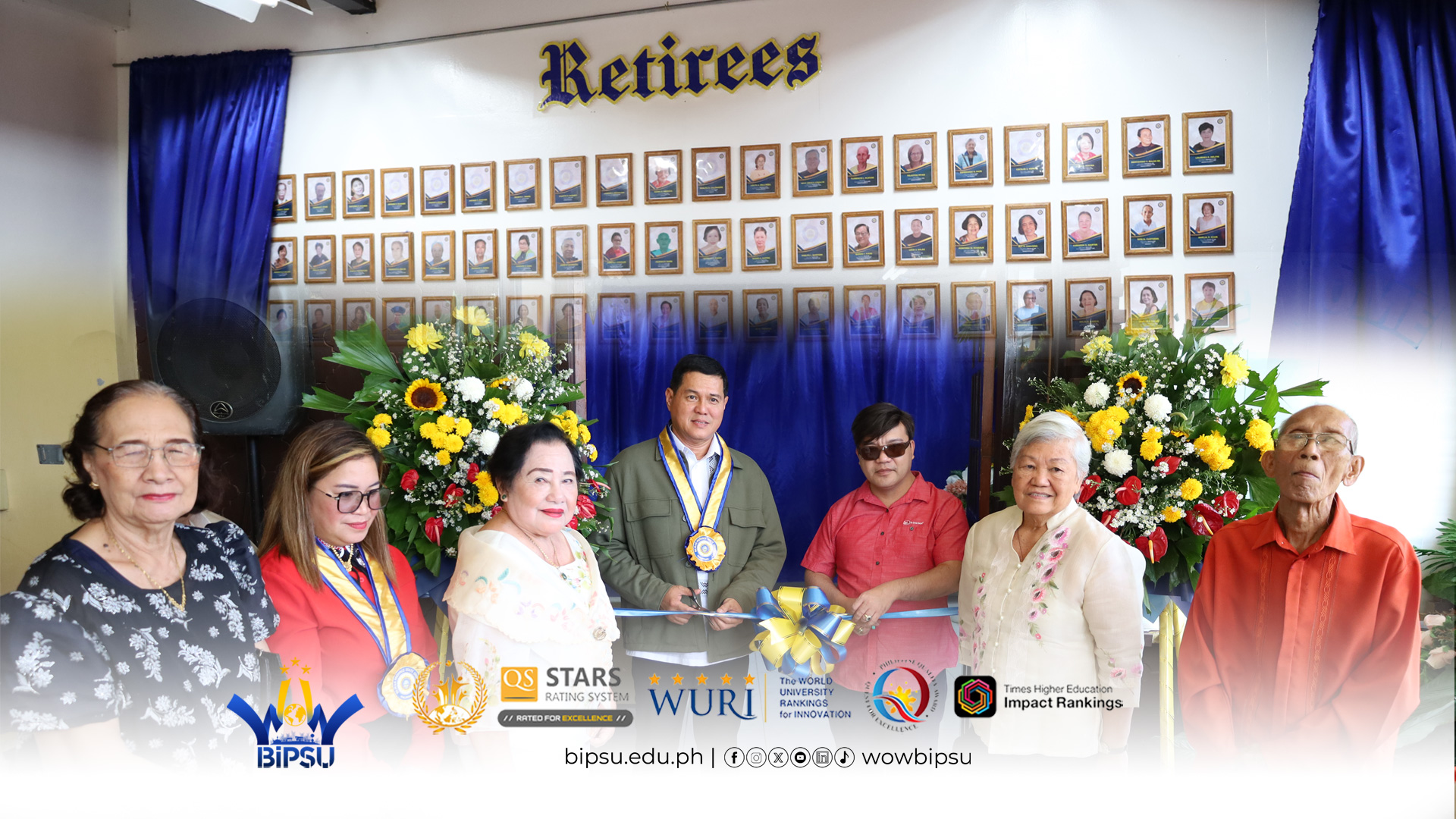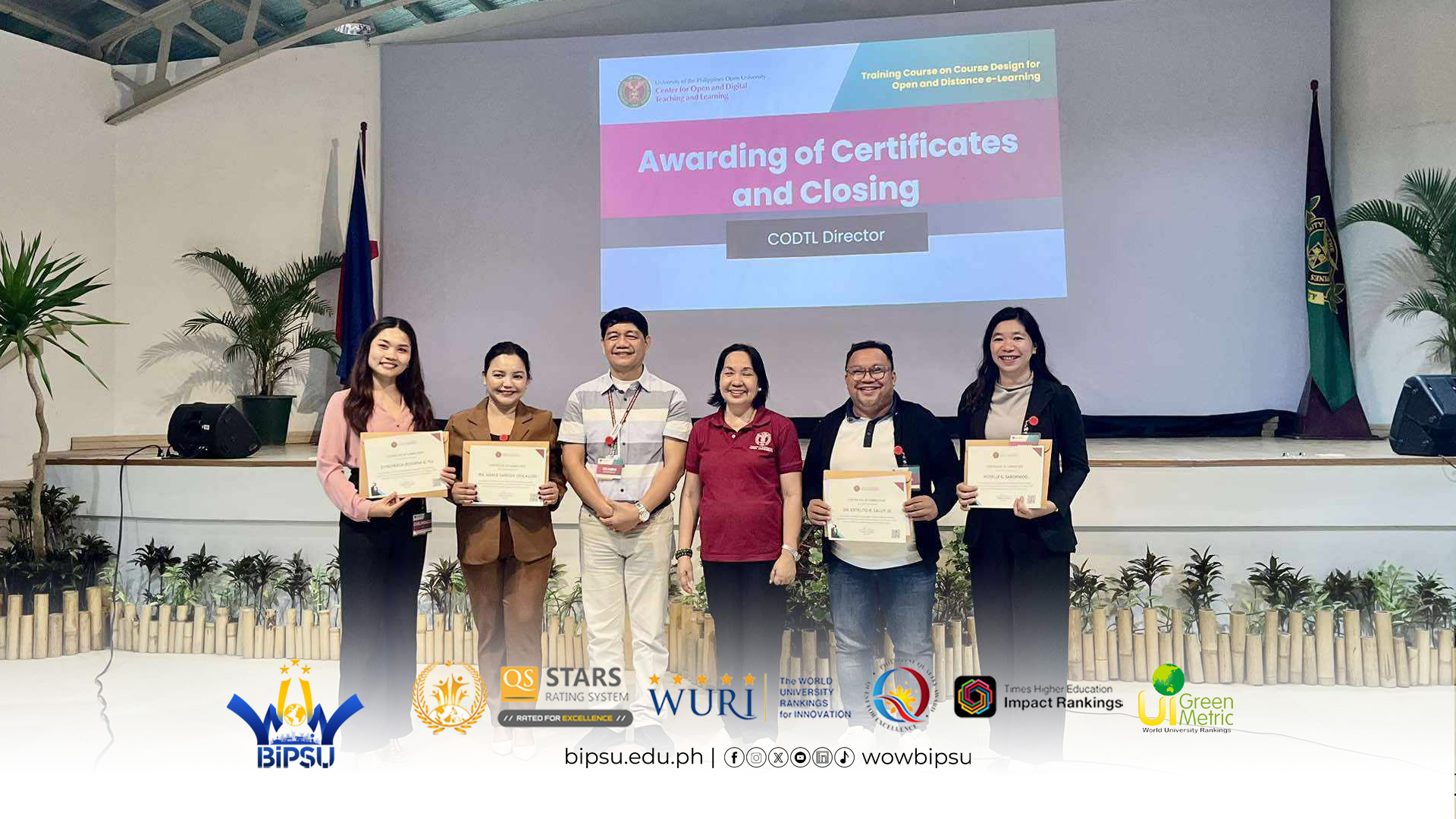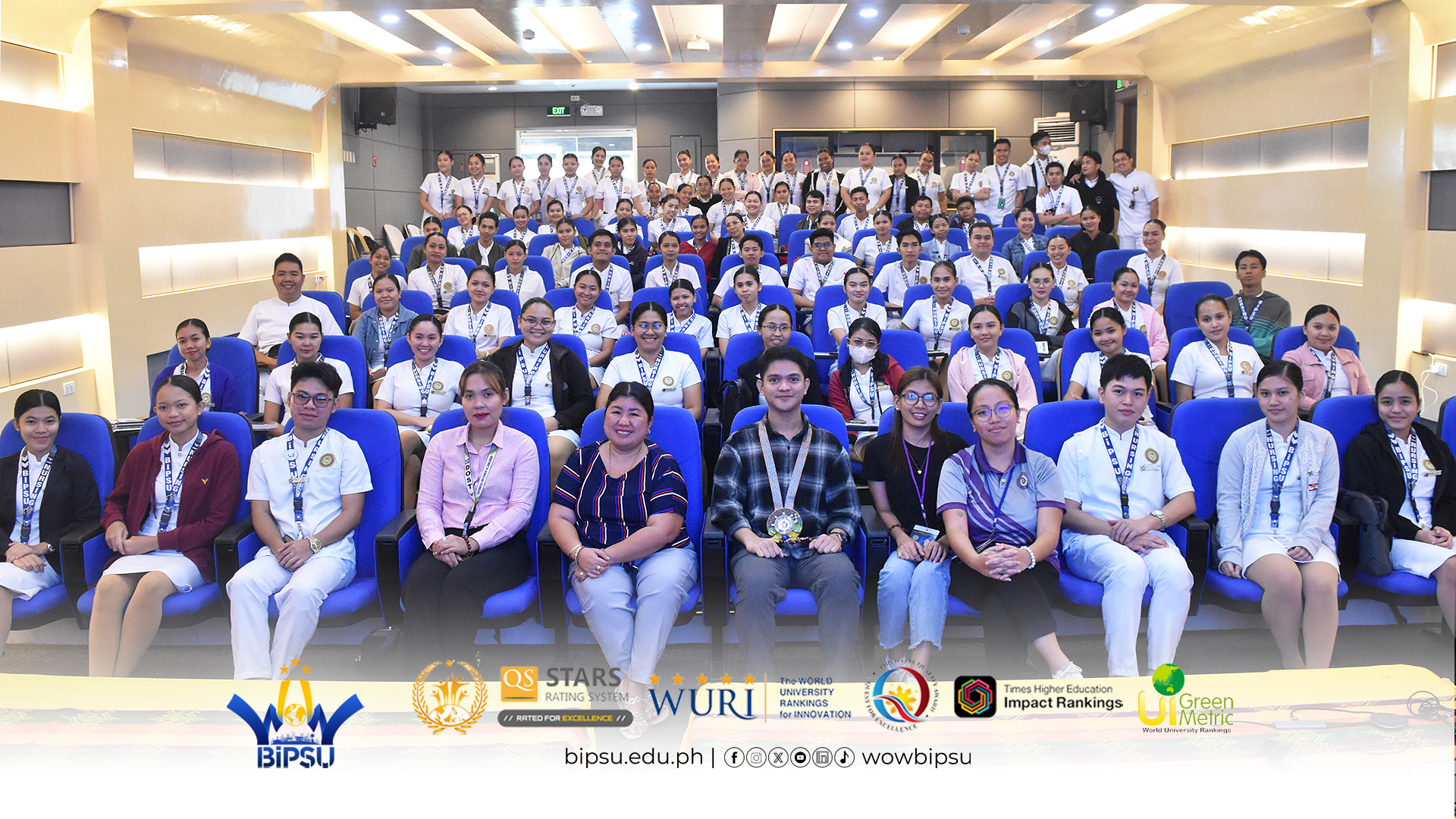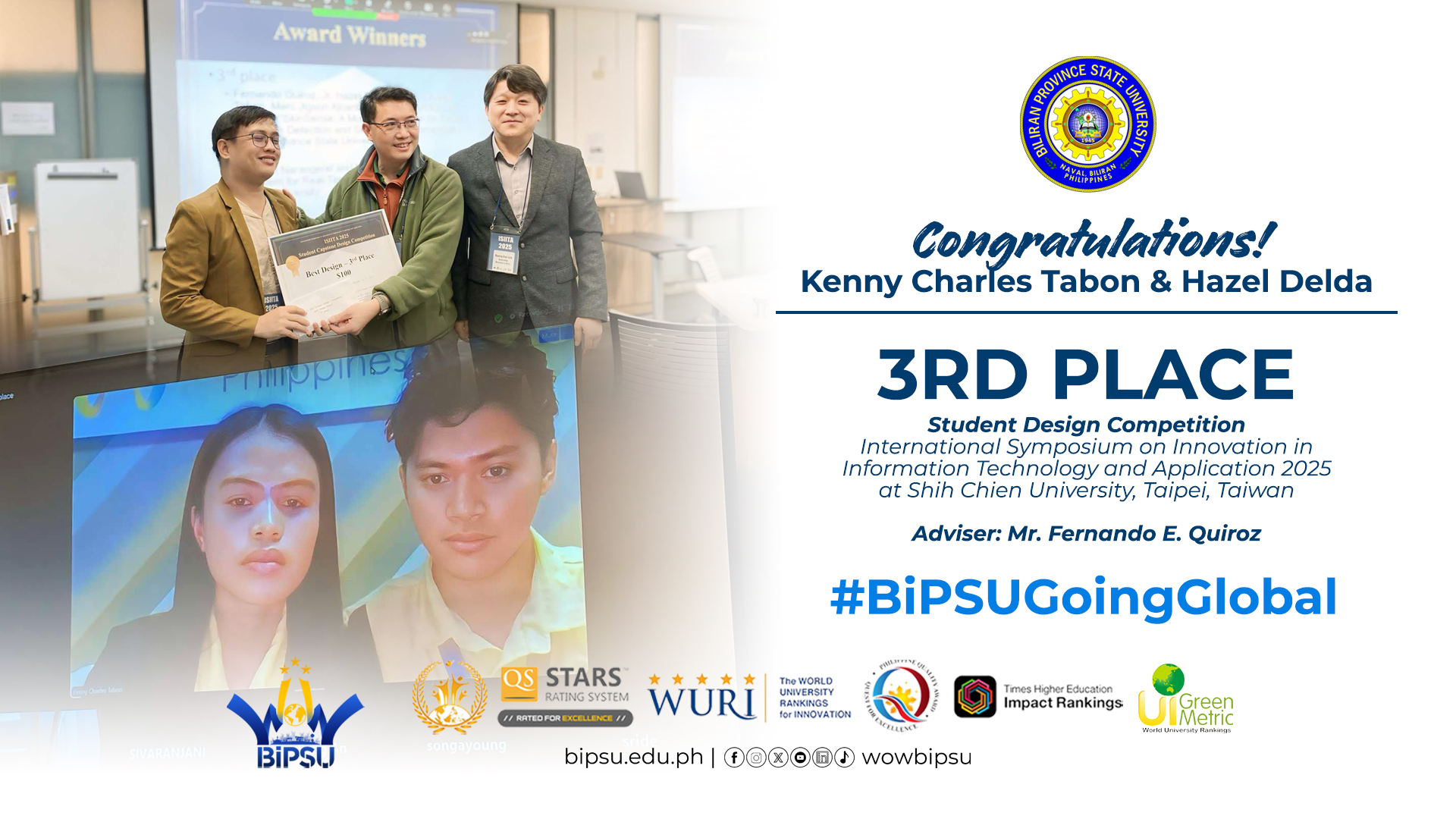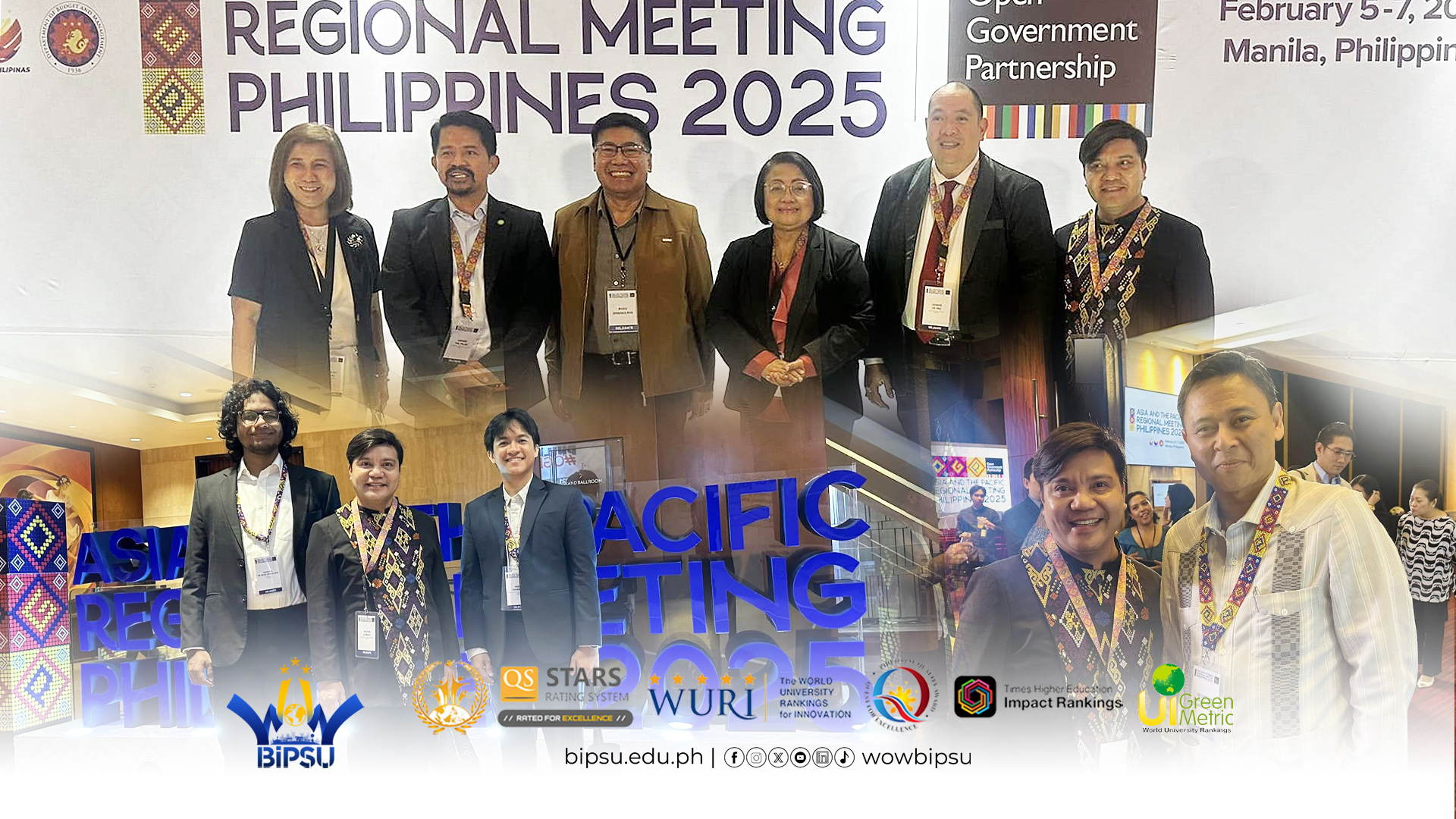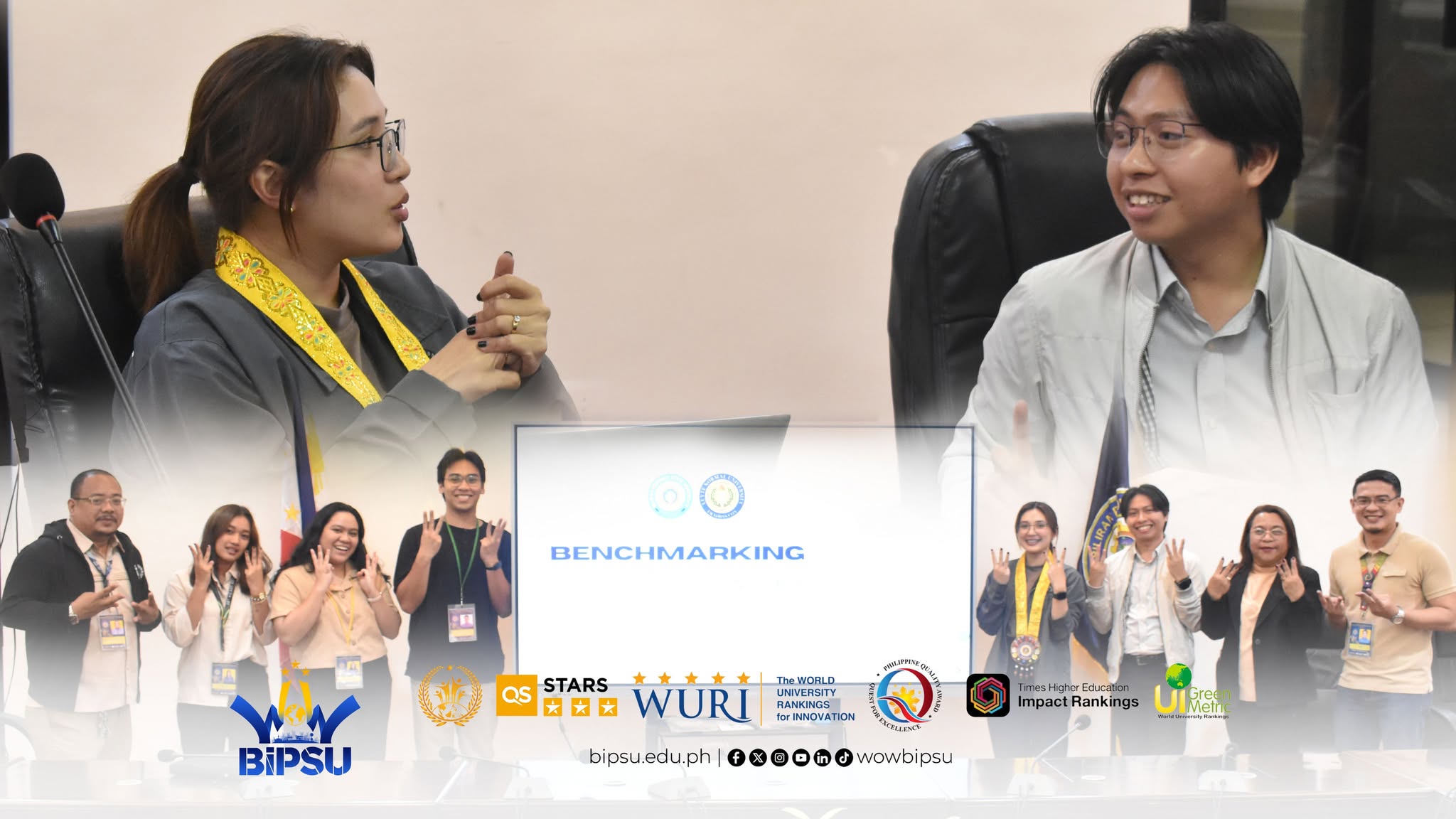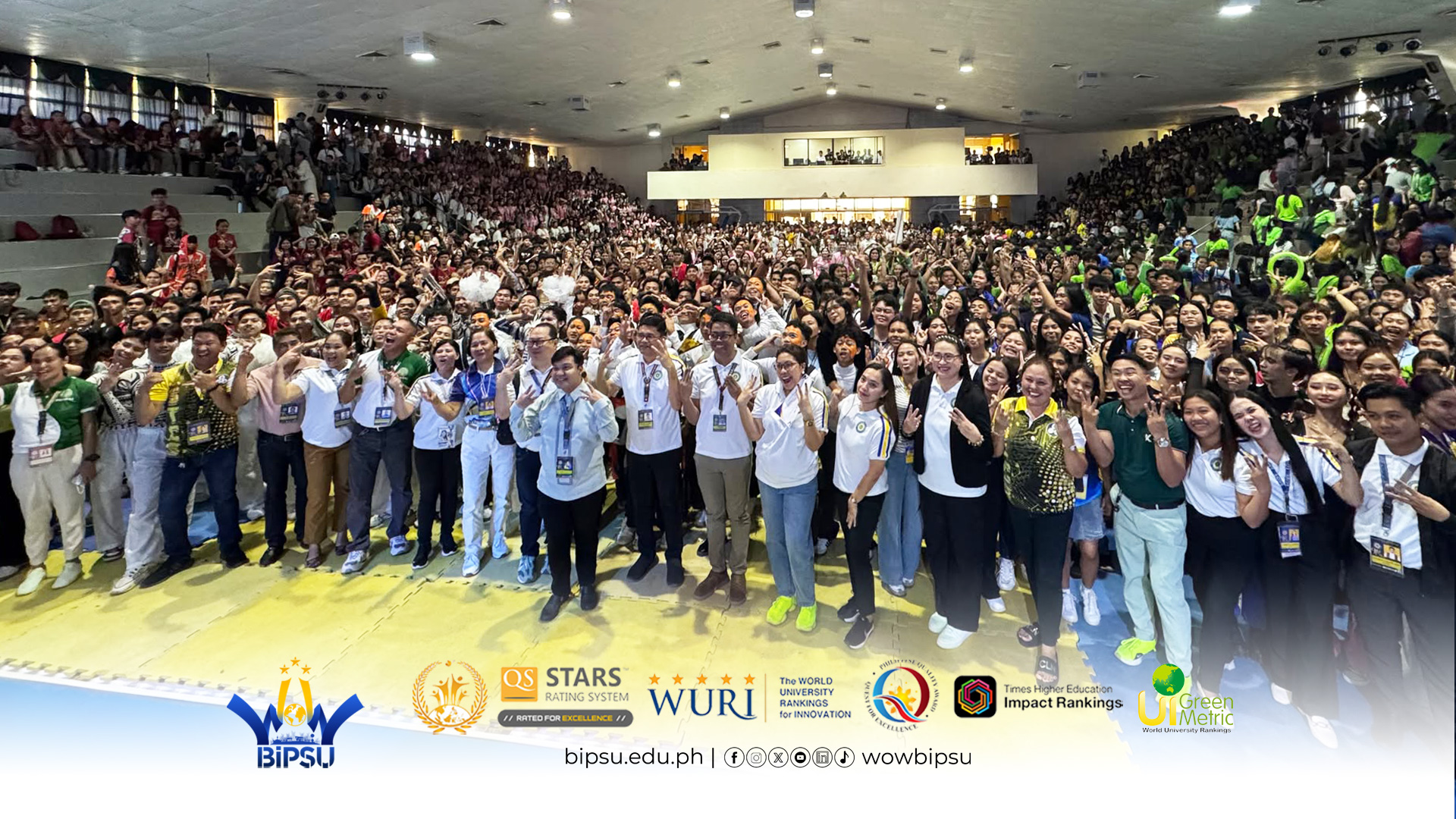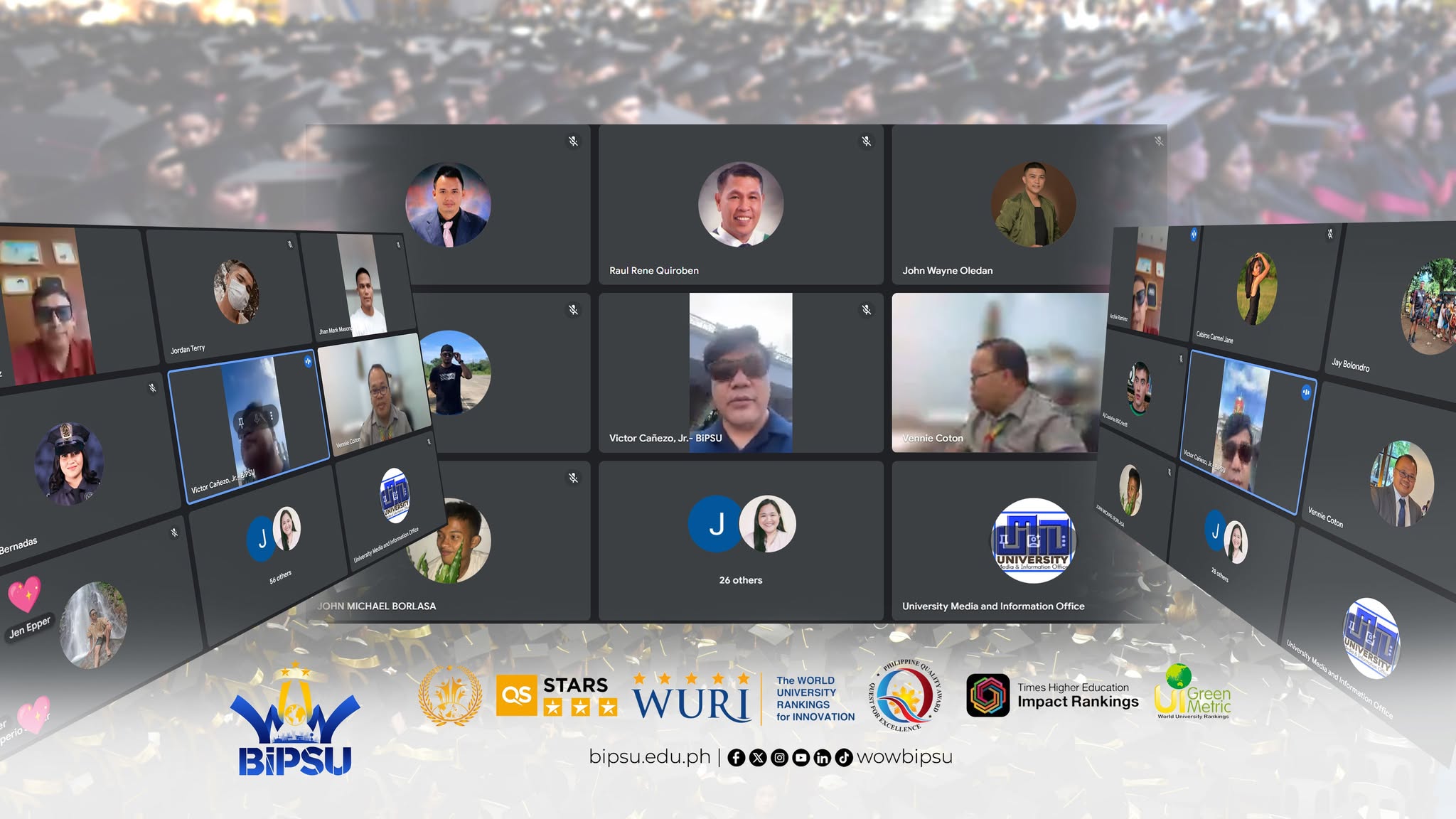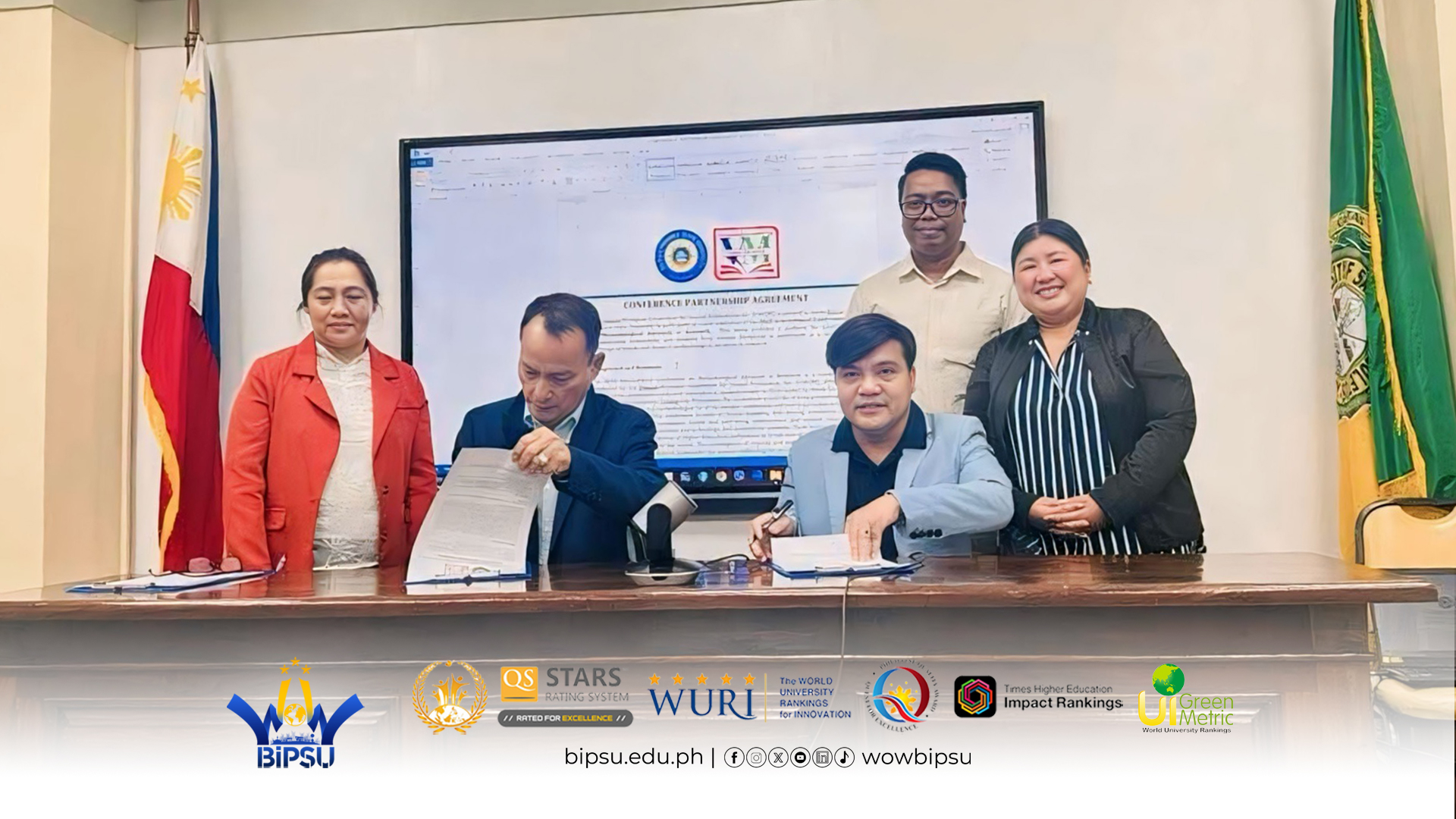- Written by Engr. Joshua Gibson Fuentes; Photo by Mr. Mark Ronnie Mangco
- Read Time: 1 min
The wave of infrastructure development at Biliran Province State University (BiPSU) continues as the university officially breaks ground for a ₱15-million Business Hub and Innovation Center at its Naval Campus.
Located near the 2nd gate of the university, this project includes the WoW BiPSU Park which will serve as the main entrance for students. The whole project consists of two bays of two-storey buildings, housing the university innovation hub and a commercial space.
The Phase 1 of the project, titled “Provision of Higher Education Services,” is funded under the General Appropriations Act (GAA) 2025.
The groundbreaking ceremony, held in line with the celebration of the 6th Charter Day of BiPSU, was spearheaded by University President Dr. Victor C. Cañezo, Jr. and members of the BiPSU’s Board of Regents, including DOST Regional Director Hon. John Glenn Ocaña, Faculty Regent Hon. Vennie G. Coton, Student Regent Hon. Aluah Kane T. Cabalhin, and Private Sector Representatives Hon. Jean Clare Diu and Hon. Jamie Dianne Ortiz-Espina.
Dr. Carlou G. Bernaldez, acting director of Cultural Affairs at Negros Oriental State University, BiPSU vice presidents, unit heads, directors, and students also attended the ceremonial groundbreaking.
In his State of the University Address (SUA) held before the groundbreaking ceremony, University President Dr. Cañezo shared that the said facility will be a trailblazer facility in the academic landscape.
“Looking ahead, I’m excited to share that in 2025, we will begin the construction of Phase 1 of the BiPSU Business Hub and Innovation Center, as well as the new Main Entrance of our university, complemented by the WoWBiPSU Park,” the university president shared. “This new main entrance will not just be a physical gateway but also a symbol of the beginning of many more accomplishments we are set to achieve.”
[This aligns with SDG 9: Industry, Innovation, and Infrastructure.]
